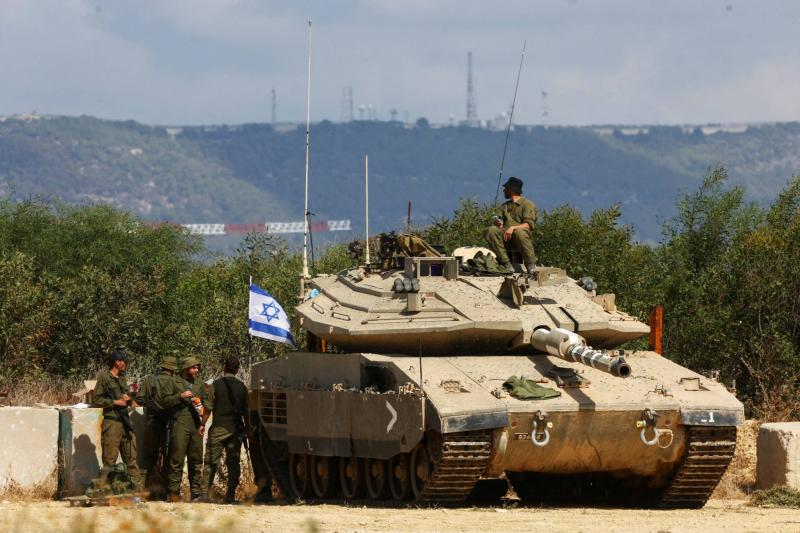Western diplomats, as reported by the French newspaper "Le Monde," view the ongoing war between Hamas and Israel as a "gift from heaven" for Moscow, which hopes to distract the Western front. The report states, "Following the Hamas attacks on October 7, Russian media barely concealed its satisfaction with what happened, despite the risk of a general conflict in the Middle East, including Syria." The Russian stance suggests that the turmoil in the Middle East could inhibit the United States' ability to supply both Ukraine and Israel with weapons and material support simultaneously.
Russian President Vladimir Putin noted on Wednesday that the U.S. provision of long-range missiles to Kyiv and their usage would only prolong Ukraine's "suffering" at a time when it hopes these weapons will expedite its counteroffensive. U.S. President Joe Biden welcomed EU leaders Charles Michel and Ursula von der Leyen to the White House for a summit meant to convey a message of unity regarding both Gaza and Ukraine.
Washington has announced it secretly delivered the military tactical missile system "ATACMS," with a range of 165 kilometers, to Ukrainian forces so they can attack Russian rear bases. Ukrainian President Volodymyr Zelensky announced the successful first use of these weapons. His special forces claimed responsibility that same day for strikes that targeted airports in Russian-occupied territories.
The newspaper argues that "what is now at stake" goes beyond merely including the Ukrainian issue as an important item in news programming; it relates to the West's efforts since February 2022 to isolate Russia and rally countries from the Global South to its cause. These efforts, relatively successful to this point, are now waning among public opinion and governments in the Middle East, Africa, Asia, and Latin America, with "isolation threatening the Western bloc," as stated in the report.
According to the same report, "Israel's retaliation against Gaza" and Western support for this approach undermine two pillars upon which Western discourse on Ukraine rests: "Russia's failure to respect international law and the crimes committed by its army." As Israeli bombardment of Gaza began the day after Hamas's deadly attack on areas in southern Israel, "comparisons were quickly drawn between Russian occupation and Israeli occupation," according to the newspaper.
Le Monde suggests that observers in the Middle East specifically perceive "the West as dealing with a double standard" regarding the war in Ukraine and the new war between Gaza and Israel. "In this heated atmosphere, avoiding comparisons between the Russian bombardment of energy infrastructure in Ukraine and Israel's decision to cut electricity to Gaza is difficult," states Le Monde.
The newspaper quoted a diplomat saying, "It's a gift from heaven to Putin." One source estimated that the U.S. would allocate $60 billion for Ukraine and $14 billion for Israel, with another source estimating U.S. funding for both countries. Reuters reported an insider saying that the additional spending request President Biden would submit to Congress would include $60 billion for Ukraine and $14 billion for Israel.
Tatiana Kastoujeva-Jean, director of the Russia and Eurasia program at the French Institute of International Relations (IFRI), added, "All the West's rhetoric and efforts on this matter have been undermined; it's a gift from heaven for Moscow, which is struggling to break its international isolation due to the opening of this new front in the Middle East."
Moscow sees the conflict between Hamas and Israel as an opportunity to redirect accusations aimed at it—often citing international law and crimes against civilians—toward "the West that supports Israel."
It is noted that President Biden urgently requested military assistance for Ukraine and Israel as part of a massive national security package worth $106 billion. Biden’s request came a day after he linked Hamas's attack on Israel to Russia's invasion of Ukraine in a speech intended to persuade Americans of the need for the United States to assume a global leadership role.
The U.S. president emphasized during an address in the Oval Office that the substantial appropriations, which include $61 billion in military assistance for Ukraine and $14 billion for Israel, would secure U.S. interests for generations to come. Biden connected the wars in Ukraine and Israel within the framework of portraying the U.S. as a "beacon for the world" against "terrorists" like Hamas and "tyrants" like Putin.
The ongoing war in Israel and the Palestinian territories affects the global balance of power, draining U.S. and European resources while easing pressure on Russia and providing new opportunities for China. In his remarks, Zelensky, who visited Washington in September to request more military aid against Russia, expressed his "gratitude" to Biden for proposing assistance. He added on X (formerly Twitter), "We rely on both parties in Congress." There is significant support in Congress for Ukraine, including among prominent Senate Republicans where Democrats hold a majority.




